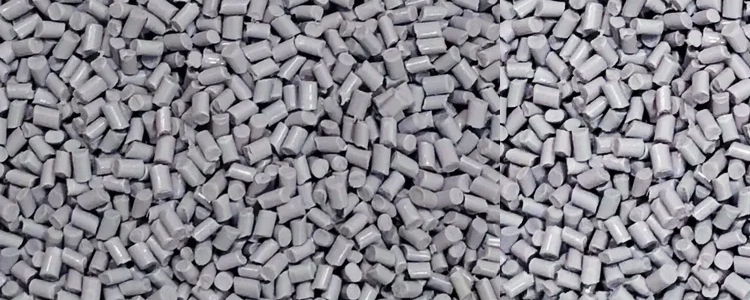rABS Granules
Our range includes high quality ABS Granules in a wide variety. The ABS Granules
have better solvent and high temperature resistance than impact polystyrenes. These
Acrylonitrile Butadiene Styrene Granules possess various physical, mechanical,
electrical and thermal properties apt for industrial applications. Our range
includes Acrylonitrile Butadiene Styrene at the industry leading rates to esteemed
clients.
Attributes
-
High rigidity.
- High impact resistance
- Easy process ability
- High dimensional stability
- Used To Make
- Computer Housings
- Miscellaneous Goods
- Automobile Components
- Lights and Rigid Molded Products
About ABS
Acrylonitrile Butadiene Styrene (ABS) is formed by the polymerization of
Acrylonitrile, Butadiene, and Styrene monomers. Chemically, this thermoplastic
family of plastics is called "terpolymers", in that they involve the combination of
three different monomers to form a single material that draws from the properties of
all three. ABS possesses outstanding impact strength and high mechanical strength,
which makes it so suitable for tough consumer products. Additionally, ABS has good
dimensional stability and electrical insulating properties.
ABS Resistance
- Excellent resistance (no attack) to
Glycerin, Inorganic Salts, Alkalis, Many Acids, Most Alcohols and
Hydrocarbons
- Limited resistance (moderate attack and
suitable for short term use only) to Weak Acids
- Poor resistance (not recommended for use
with) Strong Acids and Solvents, Ketones, Aldehydes, Esters, and some
Chlorinated Hydrocarbons
ABS Fabrication
- It can be thermo-formed, pressure formed,
blow molded, sheared, sawed, drilled, or even "cold stamped"
Joints can be ultrasonic welded, thermo-welded, and chemically bonded
Impact resistant
- Commonly used for telephone bodies,
safety helmets, piping, furniture, car components, TV casings, radios,
control panels, and similar
- Valve bodies, material handling equipment
Quick Facts
- Maximum
Temperature: 176°F (80°C)
- Minimum
Temperature: -4°F (-20°C)
- Autoclavable: No
- Melting Point:
221°F (105°C)
- Tensile
Strength: 4,300 psi
- Hardness: R110
- UV Resistance:
Poor
- Translucent
- Rigid
- Specific
Gravity: 1.04

